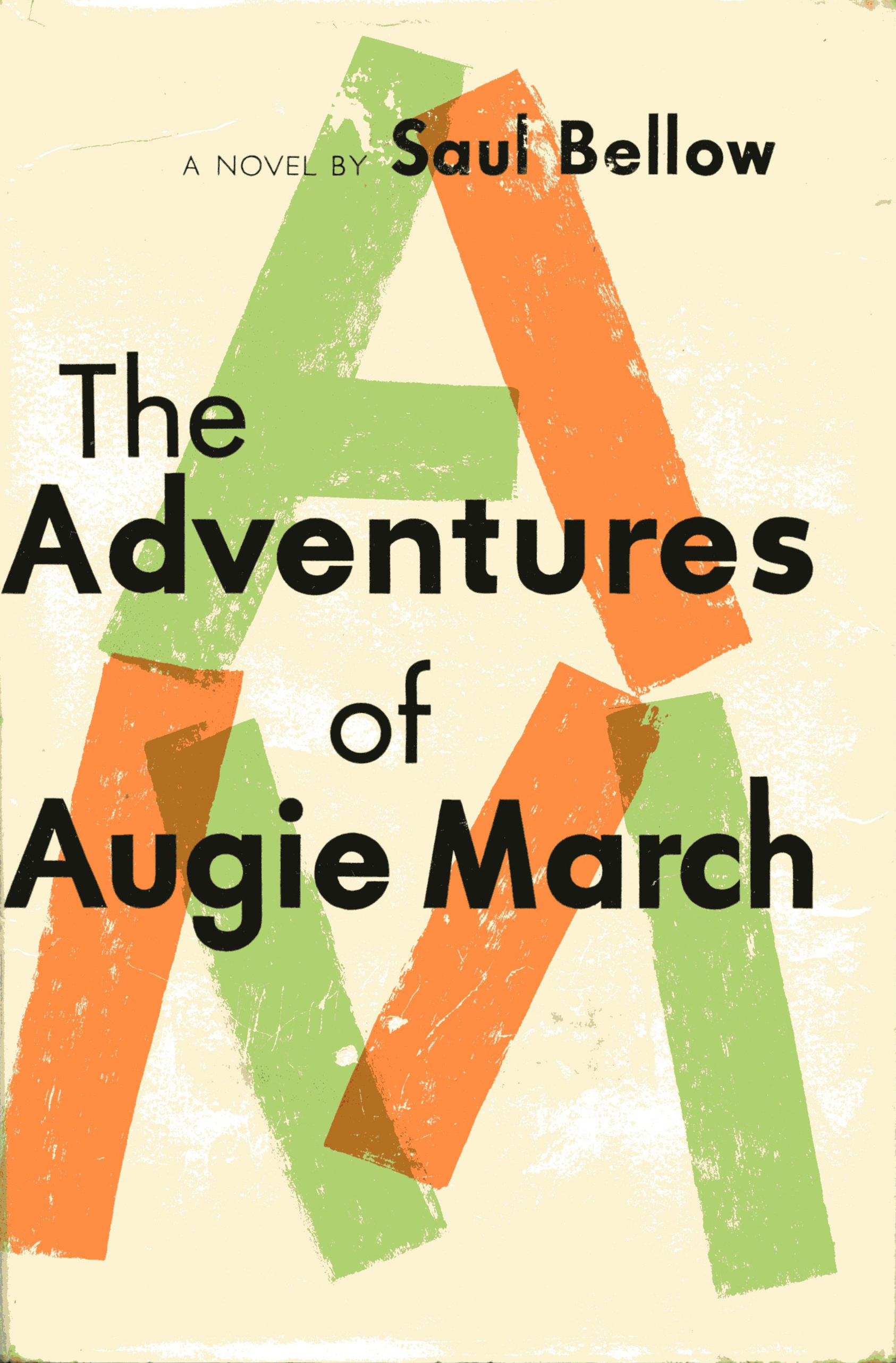Hardcover, 536 pages
English language
Published Sept. 18, 1953 by The Viking Press.

Hardcover, 536 pages
English language
Published Sept. 18, 1953 by The Viking Press.
Saul Bellow's The Adventures of Augie March is written on the grand scale, and if a label must be found for it, you can call it heroic comedy. In his search for a large and imaginative form, Bellow has looked side-wise at Cervantes and Rabelais, and the result is a celebration of life that is both fantastic and realistic, tragic and clowning.
Augie, the exuberant narrator-hero, is a poor Chicago boy growing up during the Depression. His neighborhood friends settle down in devious chosen professions, but Augie, as particular as an aristocrat, demands a special destiny. A "born recruit," he latches on to a wild succession of occupations, then proudly rejects each one as too limiting. It is not until he tangles with a glamorous perfectionist named Thea, a huntress with a trained eagle, that his independence is seriously threatened. Luckily, his nature (like the eagle's) breaks down under the …
Saul Bellow's The Adventures of Augie March is written on the grand scale, and if a label must be found for it, you can call it heroic comedy. In his search for a large and imaginative form, Bellow has looked side-wise at Cervantes and Rabelais, and the result is a celebration of life that is both fantastic and realistic, tragic and clowning.
Augie, the exuberant narrator-hero, is a poor Chicago boy growing up during the Depression. His neighborhood friends settle down in devious chosen professions, but Augie, as particular as an aristocrat, demands a special destiny. A "born recruit," he latches on to a wild succession of occupations, then proudly rejects each one as too limiting. It is not until he tangles with a glamorous perfectionist named Thea, a huntress with a trained eagle, that his independence is seriously threatened. Luckily, his nature (like the eagle's) breaks down under the strain. He goes on to recruit himself to even more outlandish projects, but always ducks out in time to continue improvising his unconventional career. His marriage to another lovely siren, the generously inconstant Stella, is his one compromise with freedom. But Angie is only the star performer in a richly observed human variety show, staged against a protean range of social settings and locales. Most important of these auxiliary stories is his brother Simon's. Unlike Augie, he has gambled on a single image of success, and his possibilities diminish as Augie's expand.
This book is more than entertaining, it is joyful, because its humor is embedded in a serious moral view. III an age when specialization takes command even in the realm of personality, Augie remains the passionately nosy explorer, holding out for the fullest experience of life. Here, too, is the first important original style to appear since the war. Based on the idiom of self-educated hero, it throws street and literary expressions together in an inspired jostle and comes out on the fresh side of surprise.
For these reasons, Augie has a good chance to become a turning-point of mid-century American ficftion, looking forward inspiringly to a much-needed revival of the great comic tradition.